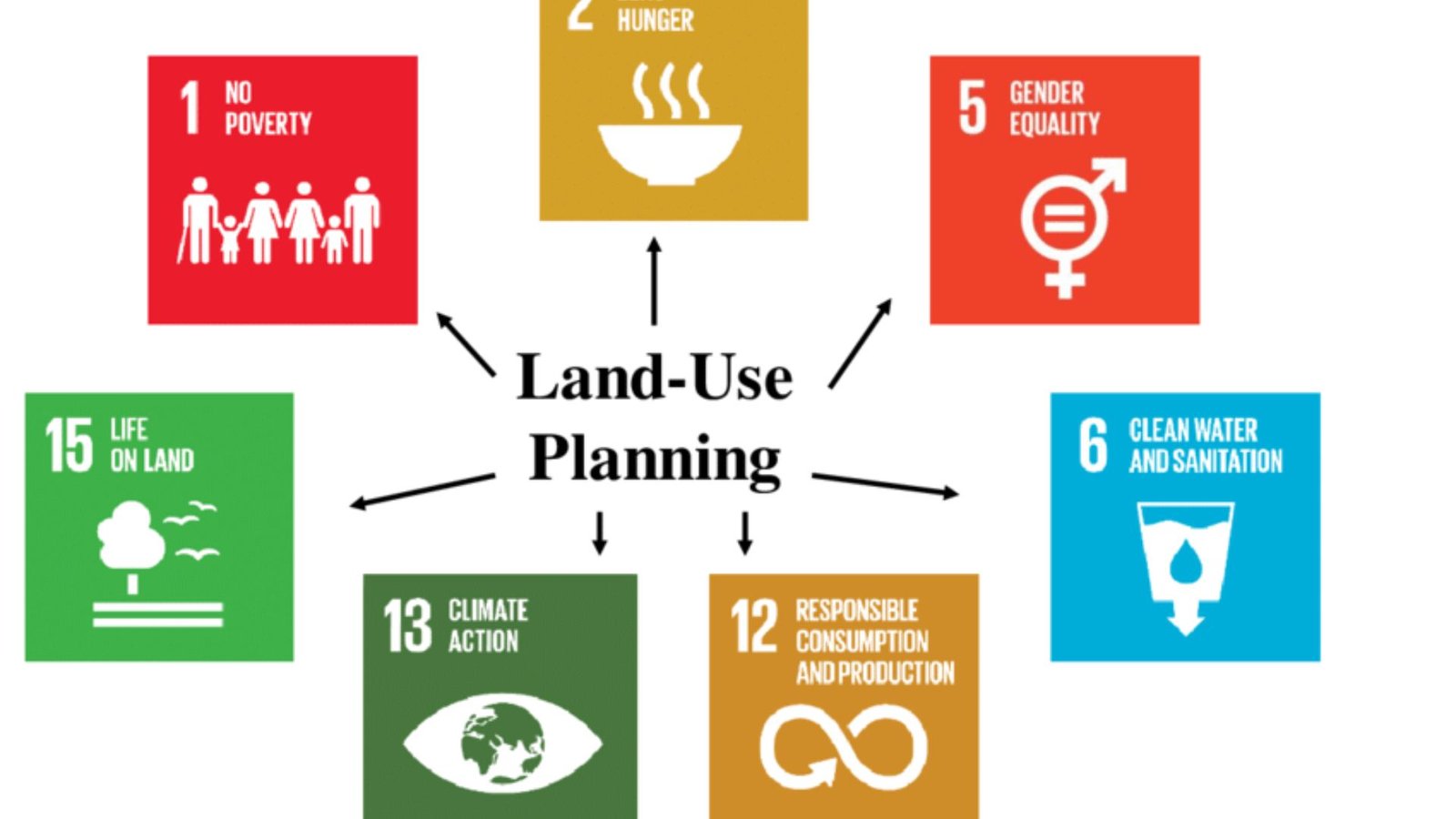Zoning laws are foundational to land planning, governing how land is used and developed in urban and rural areas. These laws help organize and regulate land use to create balanced, efficient, and sustainable communities. By dividing land into specific zones based on its intended use—such as residential, commercial, industrial, or agricultural—zoning laws play a significant role in shaping the landscape of cities and towns. These regulations ensure that different land uses are compatible, protect the environment, and foster orderly growth. In this article, we will explore the role of zoning laws in land planning and how they contribute to the development of healthy, functional communities.
1. Ensuring Orderly Urban Development
One of the primary functions of zoning laws is to prevent chaotic or incompatible land development. By designating specific zones for different types of land use, zoning laws ensure that residential areas are not located next to noisy or polluting industries, and that commercial developments are concentrated in areas where they can thrive without disrupting nearby neighborhoods. Zoning regulations also help manage population density by determining where high-density residential buildings can be constructed and where low-density, suburban-style homes should be built. This organized approach allows cities to grow in a manageable and predictable way, minimizing conflicts between land uses.
2. Protecting Property Values
Zoning laws help protect property values by maintaining the integrity of neighborhoods. For example, residential zoning laws ensure that areas designated for homes are not developed with incompatible businesses that might lower property values or disrupt the living experience. In areas where commercial or industrial development is allowed, zoning laws may regulate building height, lot size, and the types of businesses that can operate, ensuring that these developments do not negatively affect the quality of life for nearby residents. Proper zoning also helps prevent overdevelopment, preserving green spaces and open areas, which can enhance property values.
3. Promoting Environmental Protection
Zoning laws play a crucial role in environmental conservation by protecting natural resources and ensuring sustainable development. Environmental zoning regulations can restrict development in sensitive areas, such as wetlands, floodplains, or coastal zones, to prevent harm to ecosystems. For example, zoning laws may prohibit certain types of development in flood-prone areas to mitigate the risks of flooding. Additionally, zoning regulations can include requirements for green spaces, parks, and landscaping, contributing to environmental health and the overall well-being of urban populations. Zoning laws that support environmentally friendly building practices and renewable energy use also promote sustainable urban development.
4. Balancing Competing Land Uses
Zoning laws provide a framework for balancing the needs of different land uses, ensuring that they work harmoniously together. For example, mixed-use zoning allows for the integration of residential, commercial, and recreational spaces within the same area. This approach fosters vibrant neighborhoods where people can live, work, and shop within walking distance, reducing traffic congestion and the environmental impact of long commutes. Zoning laws also allow for flexibility in certain areas, permitting certain businesses in residential zones under specific conditions to adapt to changing economic needs and improve the accessibility of services to communities.
5. Supporting Economic Growth
Zoning laws are essential for guiding the development of infrastructure and promoting economic growth. By designating areas for industrial parks, commercial centers, and business districts, zoning regulations create environments conducive to business activity and job creation. For example, commercial zoning helps attract businesses such as retail stores, restaurants, and office buildings to specific locations, which can generate tax revenue and provide local employment opportunities. Industrial zoning, on the other hand, supports the development of factories and warehouses, driving economic activity and supporting the broader economy. Well-planned zoning can also encourage tourism by zoning areas for recreational and cultural attractions.
6. Enhancing Public Health and Safety
Zoning laws contribute to public health and safety by regulating the types of developments allowed in specific areas. For instance, residential zoning laws often require that housing developments include sufficient access to parks, sidewalks, and public transportation, which encourage physical activity and reduce traffic-related accidents. Additionally, zoning laws can help mitigate the risks of environmental hazards by restricting the placement of potentially dangerous industrial sites or waste disposal facilities near residential areas. In this way, zoning regulations protect communities from risks that could negatively impact public health and safety.
7. Preserving Cultural Heritage
Zoning laws can also play a role in preserving a community’s cultural heritage. Historic districts or conservation zones can be designated to protect buildings, landmarks, or neighborhoods of cultural or historical significance. Zoning regulations in these areas may impose restrictions on new construction or alterations to ensure that developments are in keeping with the historical character of the area. This helps maintain the identity and cultural richness of communities, providing residents and visitors with a sense of history and place.

8. Adapting to Changing Needs and Challenges
Zoning laws are not static; they evolve in response to changing societal needs and challenges. As cities grow and develop, zoning laws may need to be amended to accommodate new land uses, technologies, and environmental considerations. For example, as the demand for renewable energy sources increases, zoning laws may need to be updated to allow for solar panel installations, wind turbines, or other green energy infrastructure. In urban areas, zoning regulations may be adapted to facilitate the development of affordable housing or transit-oriented development in response to population growth or shifting demographics.
Conclusion
Zoning laws are essential tools for managing land use and fostering sustainable urban growth. They ensure that different land uses are compatible, protect property values, promote environmental sustainability, and support economic growth. By guiding the development of infrastructure, housing, and businesses, zoning regulations contribute to the creation of vibrant, functional communities. As cities continue to grow and face new challenges, zoning laws will remain a crucial part of land planning, helping to balance the needs of residents, businesses, and the environment. Through thoughtful and adaptable zoning practices, we can shape the cities of the future to be more livable, resilient, and sustainable.




